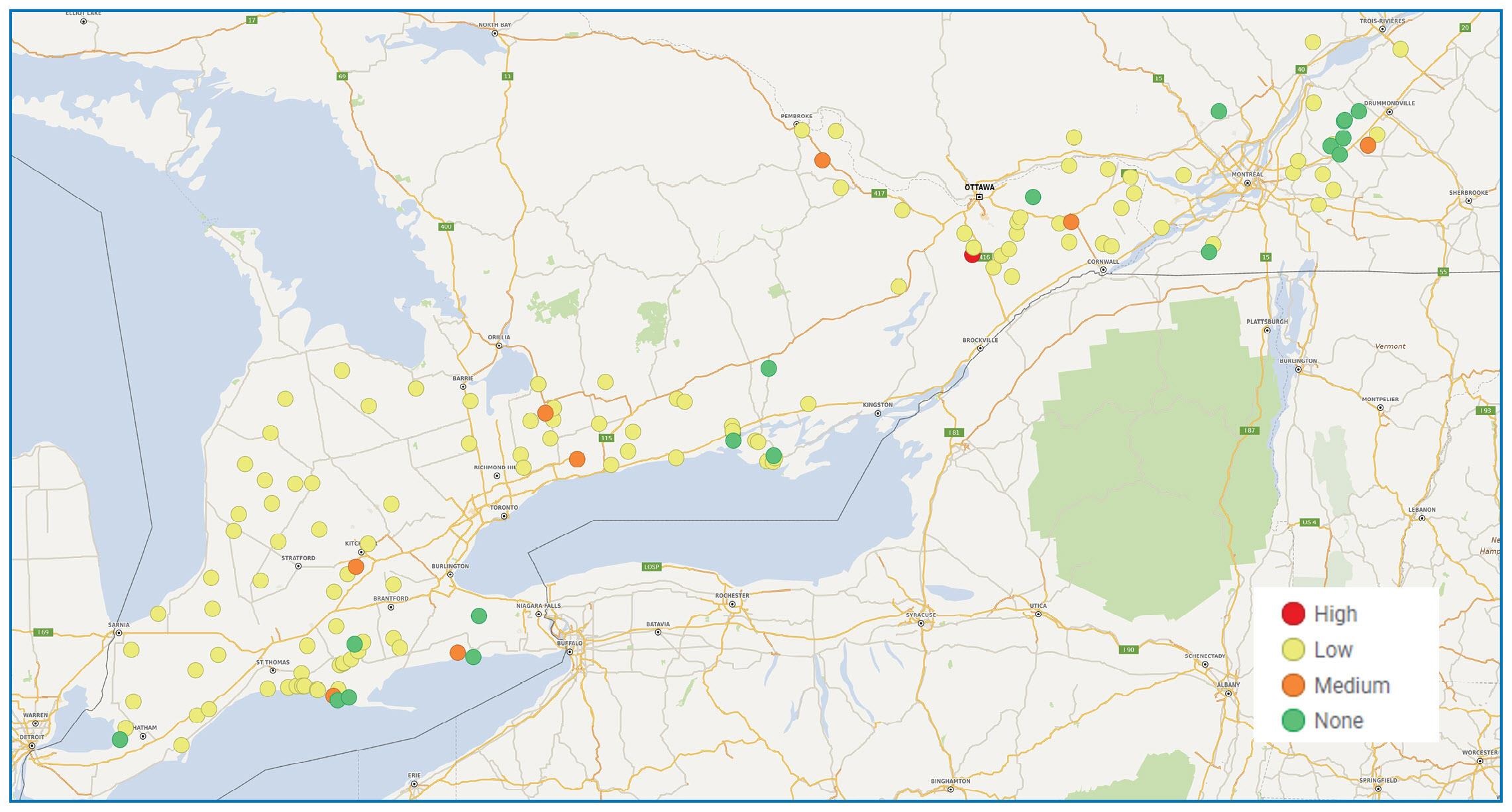Corteva testes 143 fields between Ontario and Quebec, and discovered that 87 per cent, or 124 fields, had at least one species of parasitic nematodes present.
Corteva developed its own population indicators which it uses to measure thresholds.
Most of the fields had low pressure, which Corteva defined as “less than 50 per cent indicator level for all species.”

Corteva's nematode sampling map.
Scientists analyzed samples for 14 species of nematodes and found the most prevalent species were Pin, Lesion, Spiral and Stunt.
If left unchecked, these pests can cause substantial damage to corn crops, Ratzlaff said.
“They live below the ground and are quick to reproduce,” she said. “They feed on the root system, causing root damage and inhibiting the plant’s ability to take up water and nutrients. It also opens up the plant for pathogens.”
Corteva will be bringing a new biological nematicide seed treatment to Canadian farmers in 2023.
The active component in the seed treatment, called Lumialza, is Bacillus amyloliquefaciens, a naturally occurring soil bacteria.
The product works by colonizing the roots to form a physical biological barrier from nematode attack and causes paralysis of juvenile nematodes.
“It provides that protection for more than 80 days, so (Lumialza) is a very long-lasting protection,” Ratzlaff said.
The product can also increase root biomass, plant vigour and crop uniformity.
Tests in the U.S. show Lumialza provided a 3-9 bu/acre advantage in 238 trials compared to a non-nematicide.
Corteva plans to have Ontario data after harvest, Ratzlaff said.